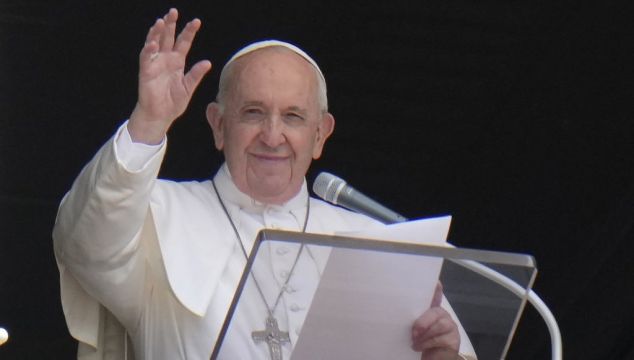Pope Francis on Saturday introduced a landmark change allowing any baptised lay Catholic, male or female, to head most departments as part of a new constitution for the Vatican's central administration.
For centuries, the departments have been headed by male clerics, usually cardinals or bishops.
The new, 54-page constitution, called Praedicate Evangelium (Preach the Gospel), took more than nine years to complete. It was released on the ninth anniversary of Francis' installation as pope in 2013 and will take effect on June 5th, replacing one issued in 1988 by Pope John Paul II.
Its preamble states: "The pope, bishops and other ordained ministers are not the only evangelizers in the Church," adding that lay men and women "should have roles of government and responsibility" in the Curia.
The principles section of the constitution says "any member of the faithful can head a dicastery (Curia department) or organism" if the pope decides they are qualified and appoints them.
The 1988 constitution stated that departments, with a few exceptions, were to be headed by a cardinal or bishop and assisted by a secretary, experts and administrators.
The new constitution makes no distinction between lay men and lay women, although appointing a lay person depended on the "particular competence, power of government and function" of the department.
The overall constitution allows for departments to have their own internal constitutions.
At least two of them, the department for bishops and the department for clergy, will continue to be headed by men because only men can be priests in the Catholic Church, experts said.
The department for consecrated life, which is responsible for religious order, could conceivably be headed by a nun in the future, the experts said. It is now headed by a cardinal.
In an interview with Reuters in 2018, the pope disclosed he had short-listed a woman to head a Vatican economic department, but she could not take the job for personal reasons.
The new constitution said the role of lay Catholics in governing roles in the Curia was "essential" because of their familiarity with family life and "social reality".
Last year, Francis for the first time named a woman to the number two position in the governorship of Vatican City, making Sister Raffaella Petrini the highest-ranking woman in the world's smallest state.
Also, last year, he named Italian nun Sister Alessandra Smerilli to the interim position of secretary of the Vatican's development office, which deals with justice and peace issues.
In addition, Francis has named Nathalie Becquart, a French member of the Xaviere Missionary Sisters, as co-undersecretary of the Synod of Bishops, a department that prepares major meetings of world bishops held every few years.







